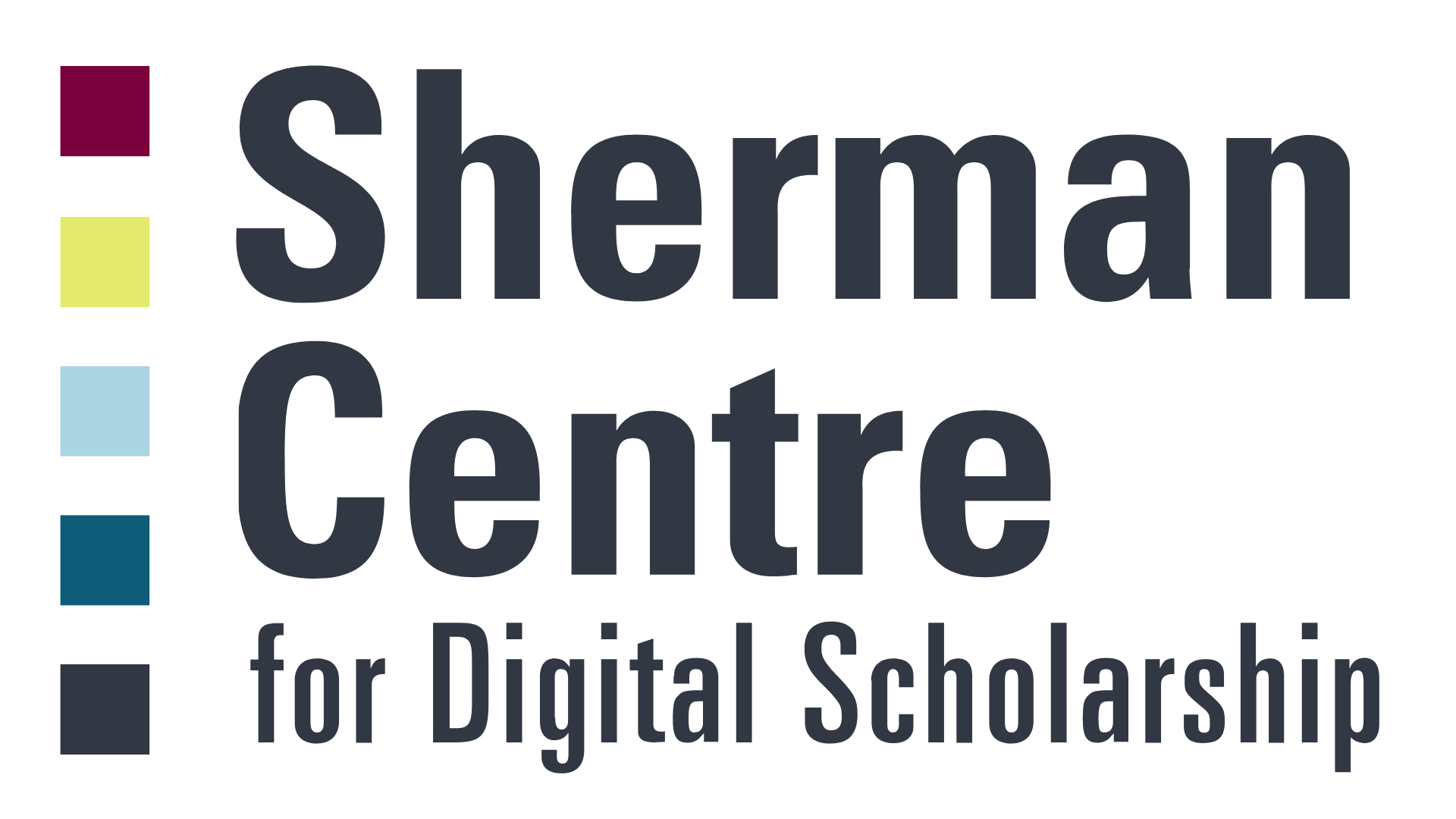The Future of
Digital Scholarship
The Sherman Centre for Digital Scholarship (SCDS), located in McMaster University Library, provides consulting, instruction, and technical support to faculty, staff, students, and community members for all aspects of digital scholarship — from teaching and training to research, dissemination, and beyond.

SCDS is made possible by a generous gift from the Lewis & Ruth Sherman Foundation and the support of McMaster University Library.
What is Digital Scholarship?
That’s a big question! Be prepared to hear different answers to your question because interpretations of digital scholarship evolve with new digital approaches and tools. Rather than define for you what digital scholarship is or what it ought to be, we share some characteristics below to help you envision how digital scholarship may support your research and teaching.
Digital Scholarship is Scholarship
Digital scholarship facilitates new modes of research. For instance, sources of evidence (i.e. social media data, biometric data, sensor data), approaches to research (i.e. database development, sentiment analysis, 3D printing), and outputs (i.e. podcasting, interactive narratives, digital exhibits, code and data repositories) common to digital scholarship challenge and alter the way researchers do research. But at the centre of digital scholarship is research; one designs and carries out the study of a particular topic in order to discover new information or arrive at a new understanding of a particular phenomenon.
Digital Scholarship is Interdisciplinary
Doing digital scholarship draws on a range of expertise and experience from across the university, as well as related networks and communities. This can happen in the traditional way that we think about interdisciplinarity, such as by bringing together researchers from different scholarly disciplines, but it also means drawing on resources from distinct units on campus. At McMaster University, for example, the Library plays a key role by facilitating research, training and teaching in digital scholarship.
Digital Scholarship is Collaborative
In the immediate sense, digital scholarship is collaborative because it is produced or conducted by people working together. Collaboration, however, includes also conscientious relationship and community building. In this respect, collaboration in digital scholarship entails identifying who the project’s stakeholders are, the intended audience and its ties to the research and resources being used, and by acknowledging everyone who contributed to the project.
Digital Scholarship is Critical
We ask a lot of questions in order to address the ways in which digital tools and methods can exacerbate inequities and injustices. Why do we not all have access to the same information, skills and experiences? How do we reduce barriers to these things? Digital scholarship presents opportunities to work collaboratively on projects that merge critical digital literacy and social justice.
Digital Scholarship is Inventive
Digital scholarship imagines new ways to do research and disseminate results. Your project might have a large digital component — or, a small and tangential one. In the end, considering digital resources and possibilities means making choices about the best ways to pursue a question, and engage scholars, students, and the public.






